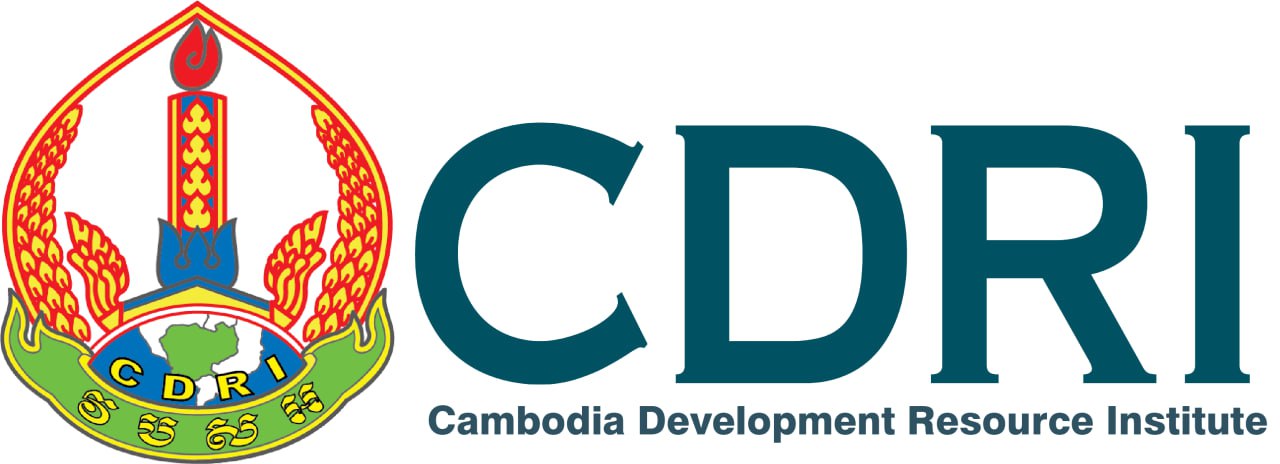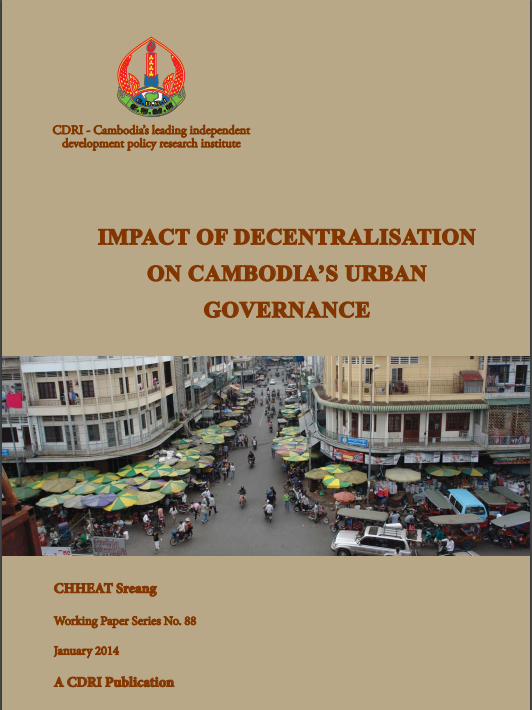
Impact of Decentralisation on Cambodia’s Urban Governance
Decentralisation has been pursued as a mechanism to strengthen local democracy and enhance service delivery within local government. There are high expectations that its promises can be realised through local citizens’ engagement in local decision-making processes that deal specifically with issues of local importance. Instituting local-level...
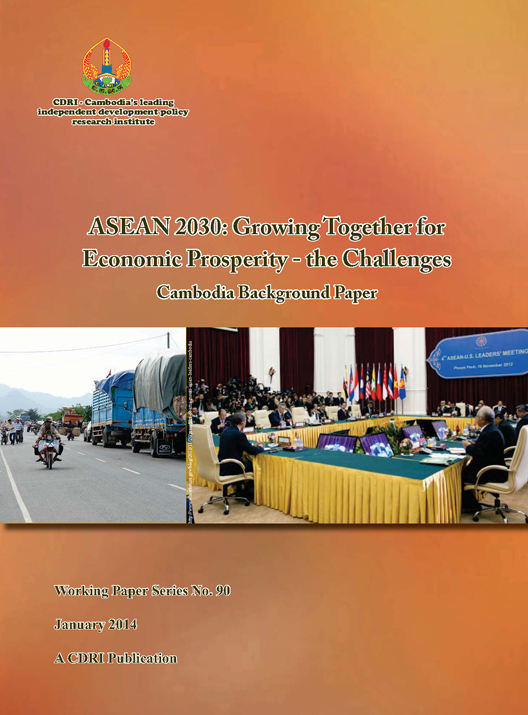
ASEAN 2030: Growing Together for Economic Prosperity – the Challenges Cambodia Background Paper
In late 2011 the Cambodia Development Resource Institute (CDRI) was commissioned by the Asian Development Bank Institute (ADBI) to produce a Cambodia country background paper for the ASEAN 2030: Growing Together for Economic Prosperity—The Challenges study. The study, conducted in collaboration with the ASEAN Secretariat and the ADB’s South-Ea...
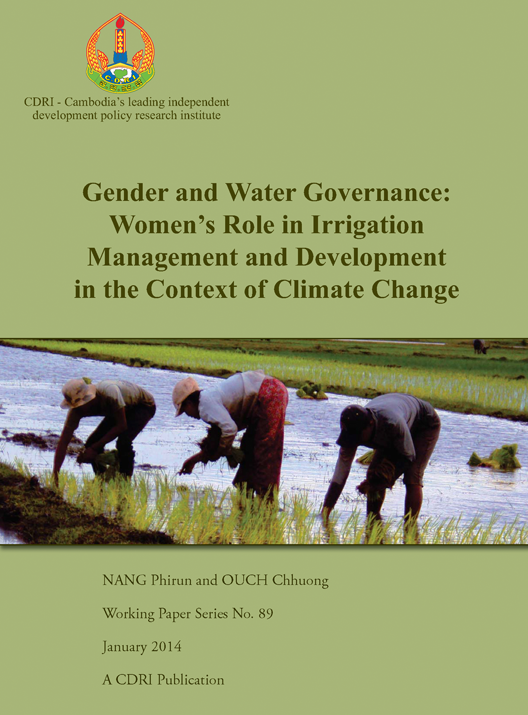
Gender and Water Governance: Women’s Role in Irrigation Management and Development in the Context of Climate Change
Addressing gender issues is essential in promoting and advancing the role and economic, social, political, legal and cultural status of women. The need to address this concern has been increasingly acknowledged by the government of Cambodia since it would help to improve and sustain not only family economy but also national development and eco...
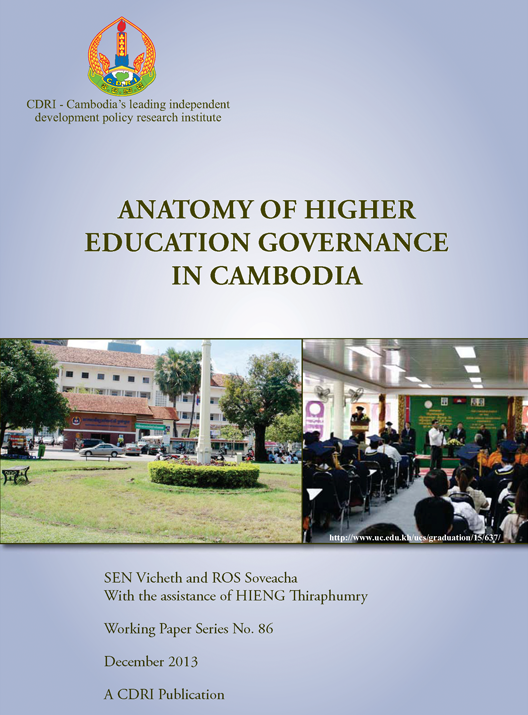
Anatomy of Higher Education Governance in Cambodia
Higher education plays a fundamental role in enhancing the intellectual capacity essential to creative leadership in all fields of national activity and in providing a skilled workforce able to respond to changing labour market demands. All citizens, and particularly the poor, need the opportunity and the skills to participate productively in the l...
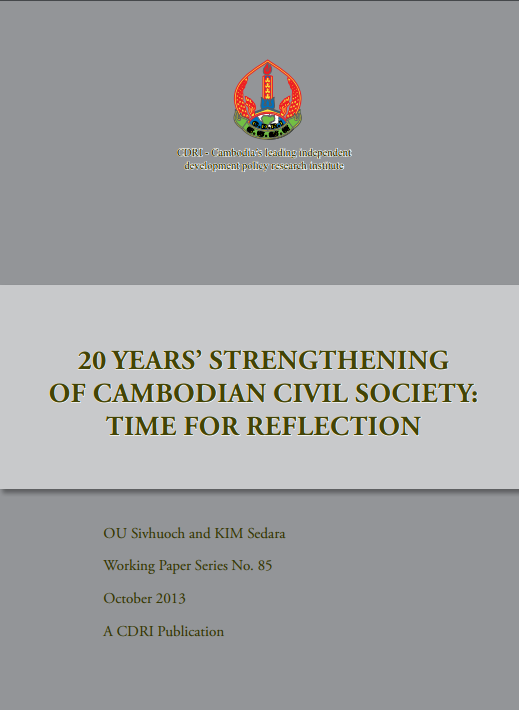
20 Years’ Strengthening of Cambodian Civil Society: Time for Reflection
In the 1980s and 1990s a large number of NGOs emerged in Cambodia, primarily in response to donors’ agendas on strengthening civil society to curb repressive developing country governments and support a broad democratisation process. Over the last 20 years, donor money has been concentrated on funding a small group of NGOs, mostly located in the co...
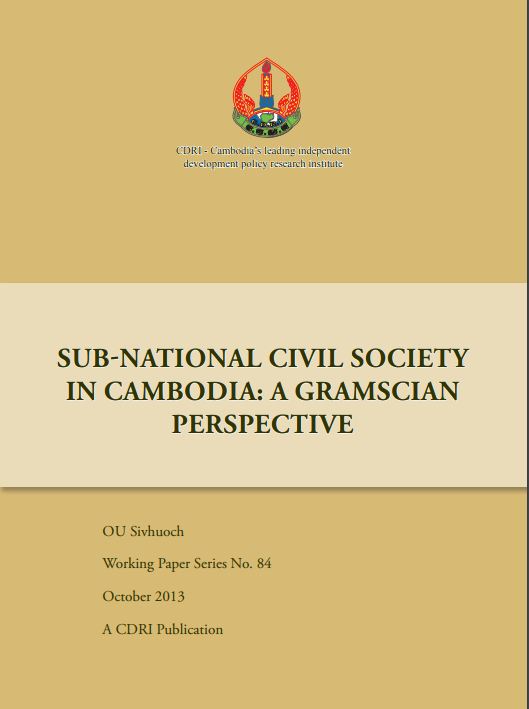
Sub-National Civil Society in Cambodia: A Gramscian Perspective
Several authors (particularly Laundau 2008; Henke 2011) label Cambodian national civil society as a sphere that is neither apolitical nor autonomous, but influenced or co-opted by and blurred with the state. They posit that a Gramscian perspective is relevant to interpreting civil society in the country. This article suggests that the application o...
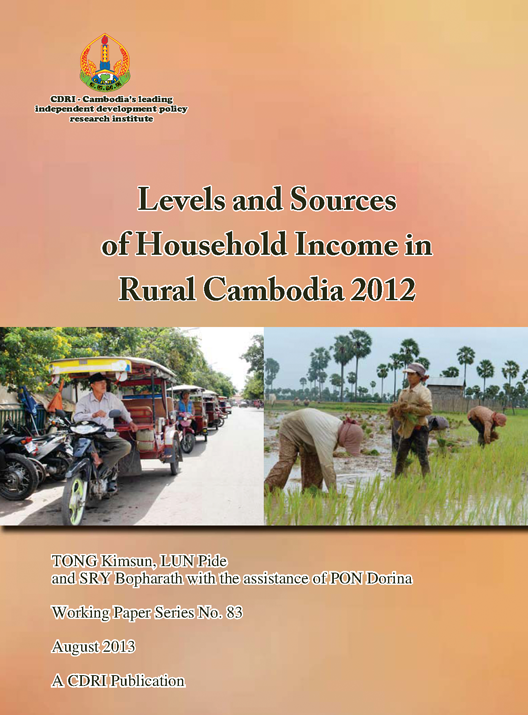
Levels and Sources of Household Income in Rural Cambodia 2012
Households in Cambodia derive their income mainly from non-farm self-employment, salaries and wages, agricultural crops and other activities. On average, non-farm self-employment income amounts to 29 percent of total income, but its share was largest during the oil and food price increases and the global financial crisis that occurred in...
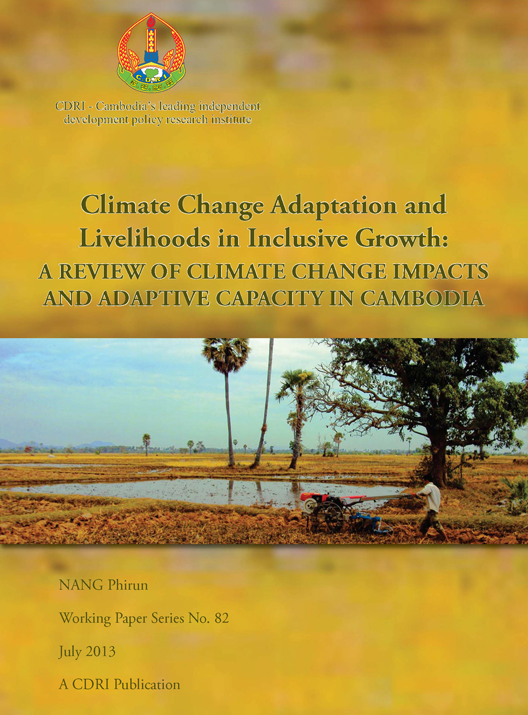
Climate Change Adaptation and Livelihoods in Inclusive Growth: A Review of Climate Change Impacts and Adaptive Capacity in Cambodia
This review outlines existing knowledge (context-specific and localised) of climate change impacts, vulnerability and adaptation, assesses the limitations of different frameworks and approaches used by various initiatives in Cambodia, and identifies knowledge gaps for future research. It explores the impacts of climate change on livelihoods through...
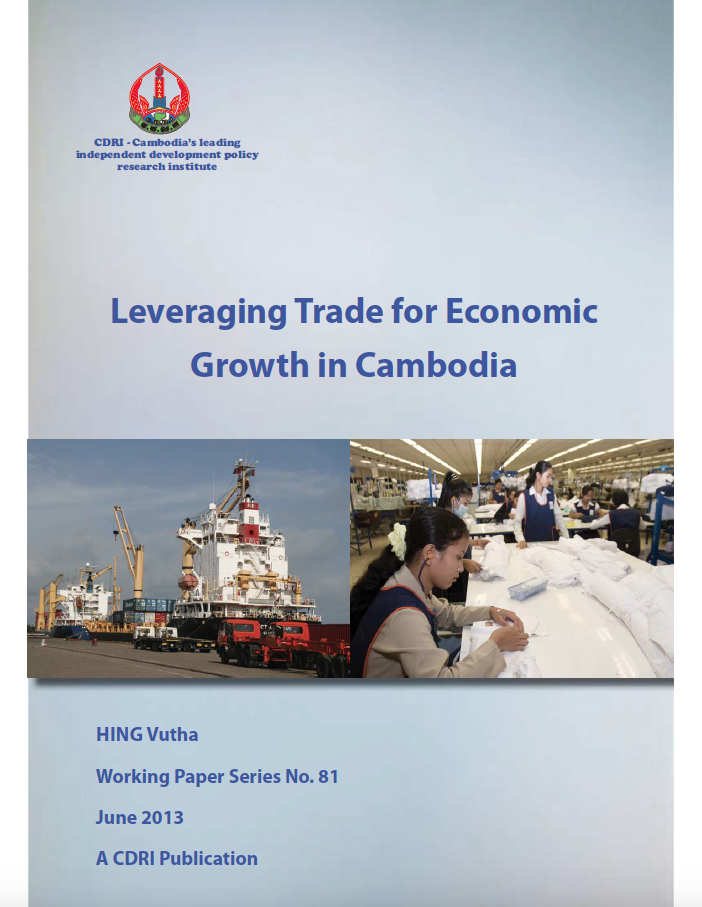
Leveraging Trade for Economic Growth in Cambodia
This paper attempts to answer three important questions: (1) Why does trade matter? (2) Whyis trade vital for Cambodia’s growth? (3) What policy priorities for Cambodia will make tradework for economic growth? First, trade matters because it increases growth. Openness to trade affects growth by: allowing a country to exploit its comparativ...
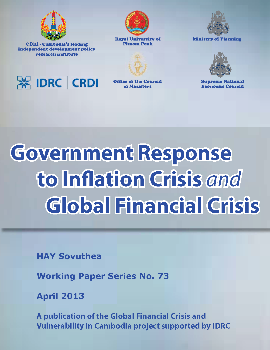
Government Response to Inflation Crisis and Global Financial Crisis
This paper takes stock of the domestic macroeconomic policy deployed in mitigating the highest inflation and lowest growth Cambodia had experienced since 1994. Fiscal and monetary policies were well-coordinated alongside a package of administrative measures to tackle soaring inflation resultant of the oil and food price hikes in 2007 and slow...
